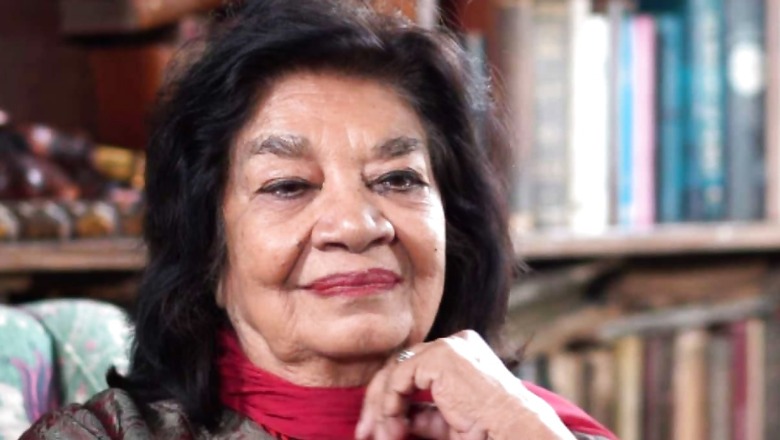
views
With a heavy heart, I reflect on the loss of Aruna Vasudev, a trailblazing figure in Asian cinema, who passed away at the age of 88. She was undergoing treatment at a multi-specialty hospital for the past three weeks.
Though she had been battling Alzheimer’s and various age-related health issues, Vasudev remained an active and passionate advocate for the arts. She has been a board member of Alliance Française de Delhi. Her contributions to the world of film and culture were immeasurable and her influence on Indian and global cinema will endure far beyond her lifetime.
Vasudev was a beacon of light for Asian cinema, bringing it to global recognition through groundbreaking initiatives such as ‘Cinemaya: The Asian Film Quarterly’ and the ‘Network for the Promotion of Asian Cinema’ (NETPAC), which she founded. Her vision culminated in the ‘Osian Cinefan Film Festival’, an event that celebrated cinema from the Asian continent, fostering understanding and appreciation for its diversity and brilliance.
With a PhD from the University of Paris for her seminal thesis on the censorship of Indian cinema, she combined academic rigor with her boundless love for the art form. Her work earned her numerous accolades over the years, including the ‘Chevalier de l’Ordre des Arts et Lettres’ from the French government, the ‘Korea Prize’ from the Busan International Film Festival, the ‘Star of Italian Solidarity’, and the ‘Kalpana Chawla Award for Excellence’ for women in India among others. These awards were a testament to her relentless dedication to advancing cinema across borders.
In the 1960s and 1970s, Vasudev directed and produced a series of documentaries for international organisations, including Swedish TV, Belgian TV, War on Want, Canadian International Development Agency, Doordarshan, and the Films Division of India. Her contributions as an editor and co-editor of several books, including In Search of the Mahabharata by Jean-Claude Carriere, further solidified her legacy as an intellectual and curator of cinematic thought.
Her own publications, The New Indian Cinema (1987) and Liberty and License in Indian Cinema (1979), remain essential reading for anyone wishing to understand the complexities of Indian cinema. She also contributed to global cinematic literature, co-editing works such as The World of Kenji Mizoguchi by Tadao Sato and When Strangers Meet: Vision of Asia & Europe in Film.
The last time I had the privilege of meeting Vasudev was at a screening of Luis Buñuel’s Viridiana at the India International Centre, in June, as part of the ‘Spanish Icons Film Festival’, curated by me for Instituto Cervantes, Embassy of Spain. I vividly recall how she listened intently as I shared my passion for Buñuel’s work, her keen intellect and curiosity undiminished. Her presence at that screening, and many others over the years, reminded us of her tireless dedication to cinema.
Though Aruna Vasudev is no longer with us, her unwavering spirit and remarkable contributions to the world of cinema will remain deeply ingrained in our hearts and memories. We have lost a giant in the field, but her legacy will continue to inspire generations of filmmakers, scholars, and cinephiles across the globe.
(The author is an Indian critic and journalist who has served as a jury member for the 69th and 70th National Film Awards. Views expressed in the above piece are personal and solely those of the author. They do not necessarily reflect News18’s views)

















Comments
0 comment